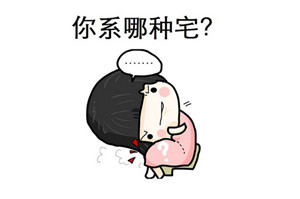
Like with any language, the meanings of certain Japanese words change over time. Take the word “otaku,” which is originally a polite way of saying “you.” It’s so polite that overusing it can make a person sound a little wishy-washy, giving the impression that he’s not really comfortable with interpersonal relationships in general. Of course, if someone isn’t spending his time interacting with other people, then what does he fill his days with? Presumably, his solitary, or at least niche, hobbies such as watching anime. And so otaku picked up a second meaning of “obsessive nerd.” That was 30 years ago though, so a recent survey sought to answer this question: What do Japanese people imagine when they hear “otaku?”
日語同其他語言一樣,日語里一些詞匯的含義也會隨著時代的變化而變化。以“御宅”(otaku)這個詞為例,這個詞原本在日語中是‘你’的禮貌說法。不過‘御宅’這個詞過于謙敬以至于使用次數太多會給人一種輕浮不善交際的感覺。當然,如果有人每天都不和別人打交道,那么他拿什么來打發時間呢?也許只能是他的興趣愛好了吧,就比如說看動漫。所以‘御宅’這個詞又有了第二個意思,它指的就是那些宅人們。御宅這個詞在日本已經有了30多年的歷史了。最近的一個調查就研究了如下課題:“日本人聽到‘御宅’的時候,會想到什么”。










